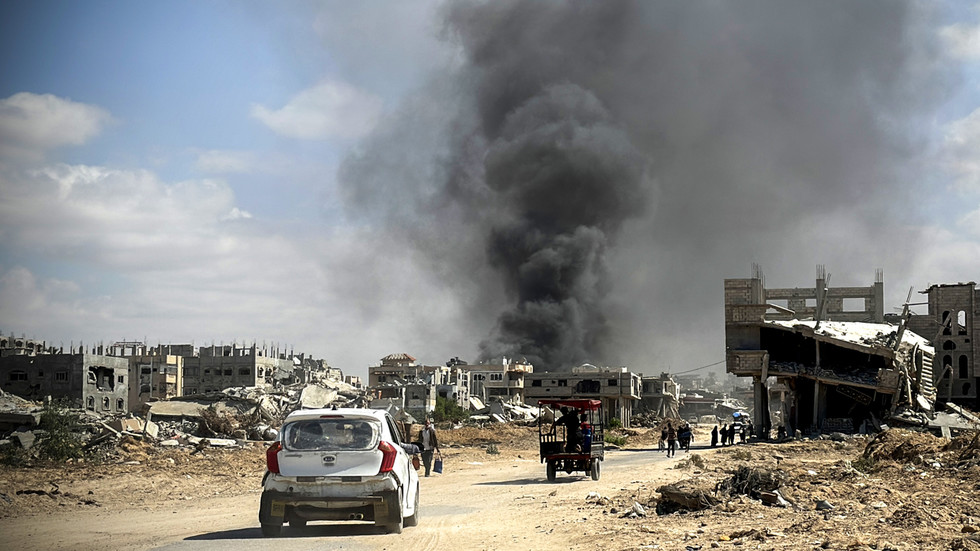The ongoing conflict in Gaza has sparked intense discussions within the United Nations, as highlighted by Russian envoy Vassily Nebenzia during a recent UN Security Council meeting. He emphasized that the unwavering positions of Israel and the United States are crippling efforts to resolve the crisis that has escalated notably since the Hamas attack on October 7, 2022, which tragically resulted in the deaths of approximately 1,200 Israelis and the abduction of 250 others. Nebenzia condemned the ensuing Israeli response, describing it as a “merciless and inhumane mass collective punishment” of the Palestinian population. He argued that the humanitarian conditions in Gaza have deteriorated to unprecedented levels, marked by the loss of close to 42,000 lives—predominantly women and children—over the past year, along with significant injuries and mass displacements among the Palestinian populace.
The Russian envoy criticized the Israeli leadership’s intransigence, attributing the ongoing cycle of violence to the backing of the United States, which has historically vetoed several UN Security Council resolutions proposing ceasefires in Gaza. While the U.S. ultimately permitted a resolution to pass in late March 2024, Nebenzia pointed out the record $17.9 billion in military aid the U.S. provided to Israel during that year, primarily in the form of munitions. This military support, he argued, exacerbates the tragic humanitarian situation in Gaza, necessitating a shift toward diplomatic pathways that prioritize peace over continued military engagement.
Nebenzia asserted that the resolution of this “catastrophic situation” in Gaza should involve a concerted diplomatic effort, calling for participation from all relevant Middle Eastern countries as well as key international stakeholders. He reiterated that the goal of these diplomatic endeavors should be to enforce the decisions made by the Security Council and the UN General Assembly, which are essential to halt the bloodshed and prevent a broader regional conflict that could be unleashed by the violence in Gaza.
Furthermore, Nebenzia highlighted the importance of recognizing the Palestinian right to self-determination as a critical factor in achieving lasting peace. He underscored that this right should not only be acknowledged but also actively facilitated through concrete measures that support the establishment of a viable Palestinian state within the 1967 borders, with East Jerusalem designated as its capital. This perspective positions Palestinian statehood as a necessary condition for ending the violence and addressing the underlying grievances that fuel the ongoing hostilities.
In summary, the Russian envoy’s remarks reflect a broader call for a negotiated solution to the Gaza crisis, rooted in principles of justice and human rights. The acknowledgment of the profound humanitarian catastrophe facing the Palestinian people, alongside a commitment to uphold their legitimate aspirations, is framed as pivotal for breaking the cycles of violence that have persisted for far too long. By advocating for a more inclusive and diplomatic approach, Nebenzia’s statements resonate with a growing sentiment among nations and organizations advocating for peace in a conflict that has already caused incalculable suffering.
As the UN Security Council grapples with the complexities of the Gaza crisis, the need for concerted action and new diplomatic initiatives remains urgent. The ongoing violence, compounded by international divisions and conflicting interests, underscores the significant challenge faced by global leaders seeking to forge a path toward peace. The outcomes of these discussions and actions may not only influence the situation in Gaza but also have profound implications for regional stability and international relations moving forward. The call for a collective response that recognizes the rights of the Palestinian people and addresses their humanitarian needs stands as a critical tenant in the pursuit of a sustainable resolution to this entrenched conflict.

